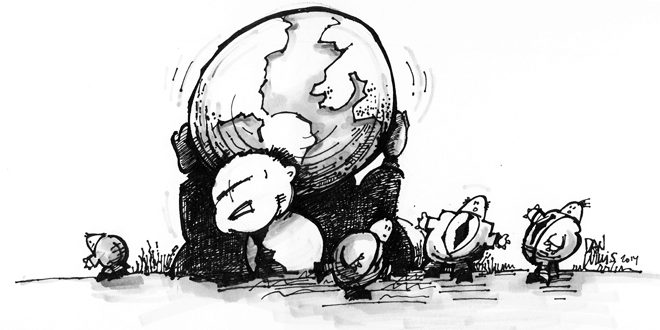The man who owns the Internet 2015-10-08
 Mike Mann is an IT specialist from Delaware, he start buying and selling domain names from late 1990s. In 1998 he got offer $25,000 for a domain he owned – menus.com, good deal, yeah? But for a next day he got a $50,000 offer. That was a time of “drop catchers”, people who wrights scripts which can take off your domain for 5 seconds when it expired. Once in a span that lasted less than 24 hours across Tuesday and Wednesday, Mann snapped up 14,962 domains — 1,822 starting Tuesday evening and the rest on Wednesday.
Mike Mann is an IT specialist from Delaware, he start buying and selling domain names from late 1990s. In 1998 he got offer $25,000 for a domain he owned – menus.com, good deal, yeah? But for a next day he got a $50,000 offer. That was a time of “drop catchers”, people who wrights scripts which can take off your domain for 5 seconds when it expired. Once in a span that lasted less than 24 hours across Tuesday and Wednesday, Mann snapped up 14,962 domains — 1,822 starting Tuesday evening and the rest on Wednesday.
“I’m just really greedy,” said Mann, a man no one would describe as modest. “I want to own the world.”
The man at the top of this little-known hierarchy is Kevin Ham — one of a handful of major-league “domainers” in the world and arguably the shrewdest and most ambitious of the lot. Even in a field filled with unusual career paths, Ham’s stands out. Trained as a family doctor, he put off medicine after discovering the riches of the Web. Since 2000 he has quietly cobbled together a portfolio of some 300,000 domains that, combined with several other ventures, generate an estimated $70 million a year in revenue. A onetime hotshot programmer, Ye used his software chops to build the bulk of his domain empire in the late ’90s and early 2000s. He became a master at what’s known as “catching,” or buying up domains that were dropping because people gave up on them or forgot to pay the annual registration fee. At the time, the system was secretive, and domainers were trying to figure out what names were expiring and when. In the dark of night, Ye would sit before a bank of computers and, like a conductor, launch programs he wrote to shoot rapid-fire requests to purchase names. His prowess quickly became clear. Chad Folkening, a domainer in Indianapolis, was disorganized in those years and sometimes missed renewal deadlines. He noticed that Ye was grabbing his expired names with lightning speed. After Ye had snapped up 100 of them, Folkening decided he needed to talk to Ye. “I was eating, sleeping, and drinking Yun Ye,” he says. E-mail drew no response. Nor did phone calls. So in late 2001, Folkening traveled to an address near San Jose listed on Ye’s domain registrations. “I figured I was going to walk up to his front door, knock, and say, ‘Yun Ye, I just had to meet you,’” says Folkening, who now owns 7,000 names. Instead, the address led him to a Mail Boxes Etc. outlet. Folkening stuck Post-It notes on Ye’s box asking him to call. Ye sent Folkening an e-mail a couple of days later, but the two never met up. Two years later, some acquaintances of Folkening’s set up a get-together with Ye in a Los Angeles bar. “I did most of the talking, then he left,” Folkening recalls. It wasn’t until the next day that it dawned on Folkening that the man he’d had drinks with was probably an entirely different Yun Ye, which the real Ye confirmed to him in an e-mail. (Ye’s attorney, John Barryhill, says Ye won’t talk to the press, and he adds, “I don’t answer questions about him.”)
When Ye was building his portfolio, there was really only one way to make money from names–reselling them.
That began to change in 2003 as paid search–developed and pushed by Overture, now part of Yahoo, and current market leader Google–started to take off. The technology powering the whole thing is complex, but not the basic business model: Advertisers pay only when someone clicks on their ads. And to get their links listed high in search results–or on a domainer’s page that someone lands on by typing a name into a Web browser–they bid on keywords.
back


 Sitetrader 2026
Sitetrader 2026